Zygomote
Zygomote is an iPhone application encouraging users to walk more regularly, as a submission to the CHI 2010 Student Design Competition.
Process
Tasked with "encouraging people to take a walk" for the CHI 2010 Student Design Competition, our team initially approached the problem by operationalizing the term walking. To better understand the problem space according to our selected target audience of young-adult Americans, we organized a focus group; but due to a lack of participation, we instead conducted one-on-one interviews the same night.
Those results, coupled with non-participatory ethnography studies on the IUB campus and secondary research, provided a wide landscape to triangulate the core problem. Guided by affinity diagrams, we focused on community influences as a primary way to encourage walking while instilling long-term behavioral change. With the assistance of two personas, several Lense exercises, a plethora of Golden Questions1 and plenty of peer opinions, dozens of concepts were generated,2 categorized and subsequently narrowed3 to a single, final concept — Zygomote.
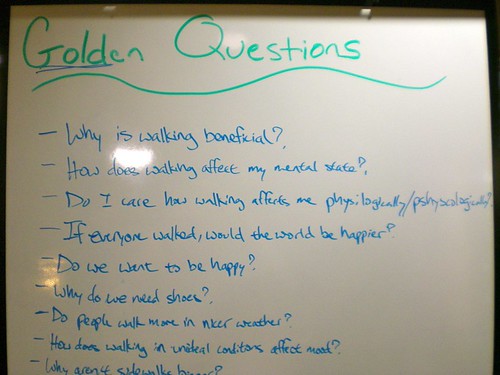
1 The Golden Questions technique proposes questions not definitively answerable to explore non-obvious possibilities.
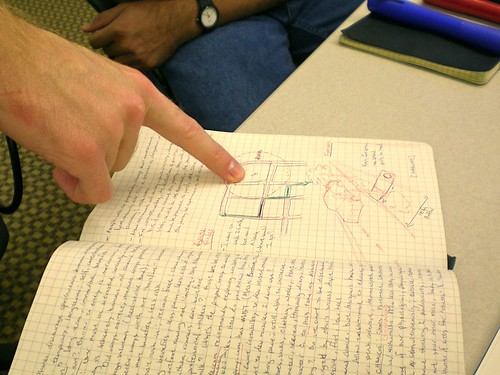
2 A concept sketch is discussed among the team.
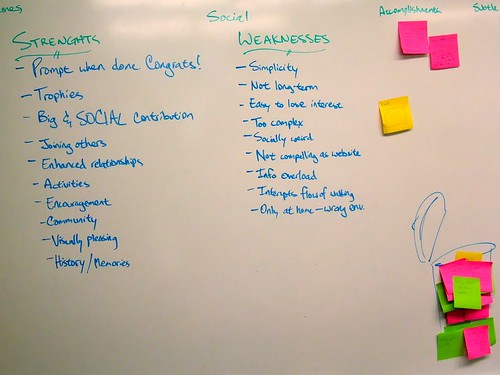
3 Concepts' strengths and weaknesses are listed, and undesirable concepts are figuratively thrown away.
Concept
The name Zygomote is a composite of two Latin bases, zygo meaning "to join" and mote meaning "motion." Essentially, the iPhone app Zygomote encourages people to join in motion and walk together, according to three primary motivations: social bonding, social accountability and small accomplishments.4 A 2D visualization illustrates the time the user spends walking with friends; the user's walking activity translates to measurable contributions to charities and causes; and the user frequently earns virtual awards for small feats. A combination of these three features will encourage individuals to walk more regularly.5
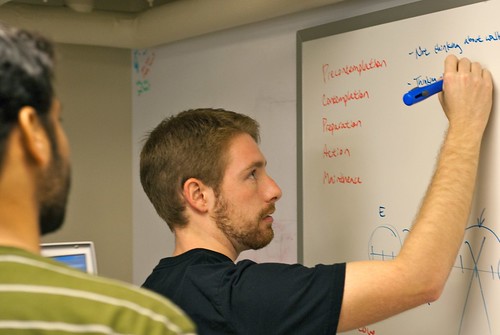
4 Chris Basham mans the whiteboard, discussing the various stages of personal motivation according to Ravi Jayaraman's research.
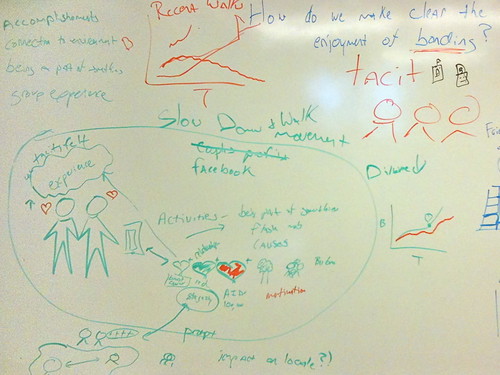
5 Zygomote explores the dynamics between social activities and walking.
Scenario-based user evaluations with paper prototypes uncovered some usability problems, yet confirmed it is both easy to learn and use. One user's comment that Zygomote will "surely encourage me to walk more with friends" indicates our design could be very successful in real-world application. Further strategies suggest how to implement, refine and sustain Zygomote.











